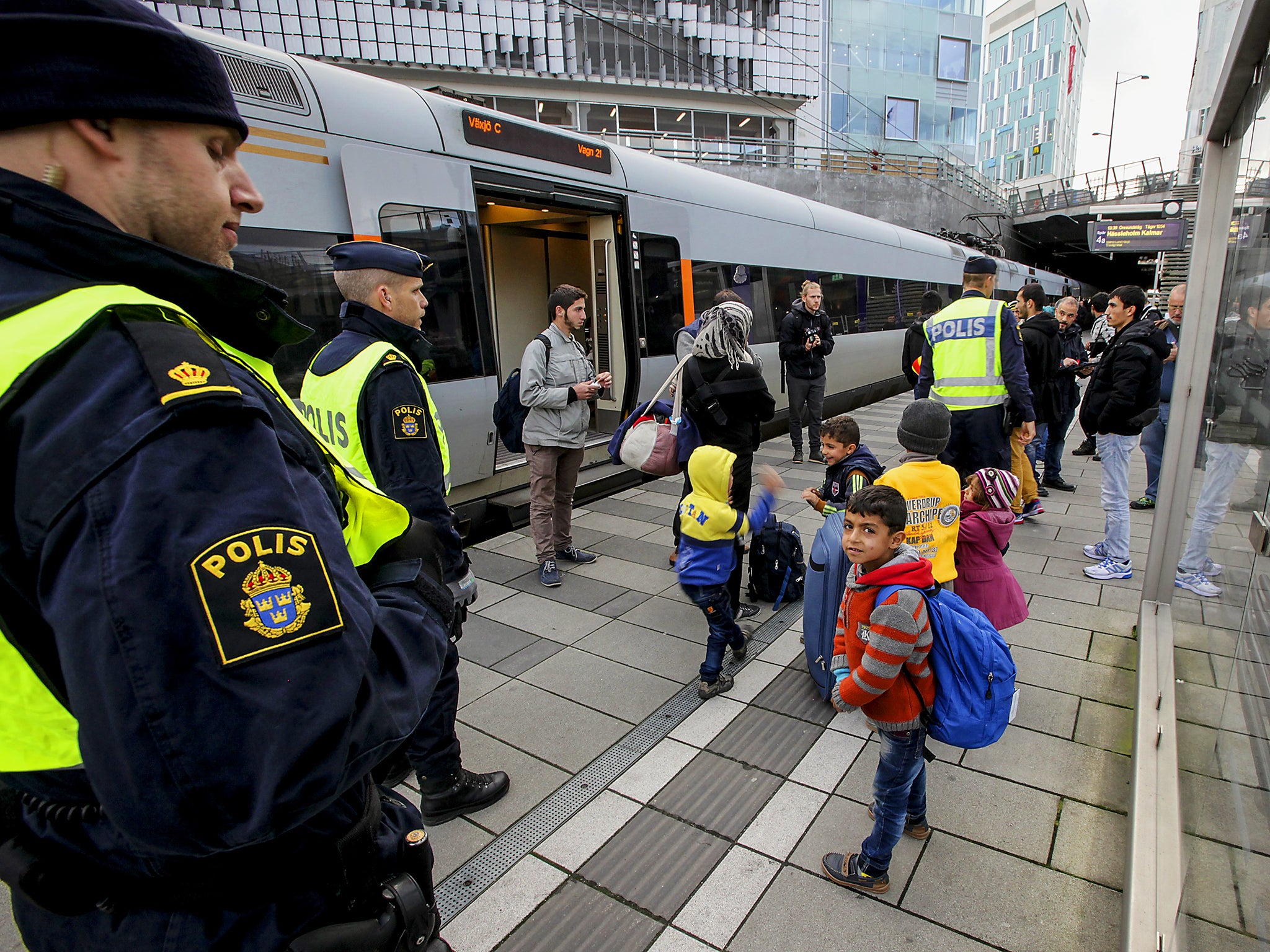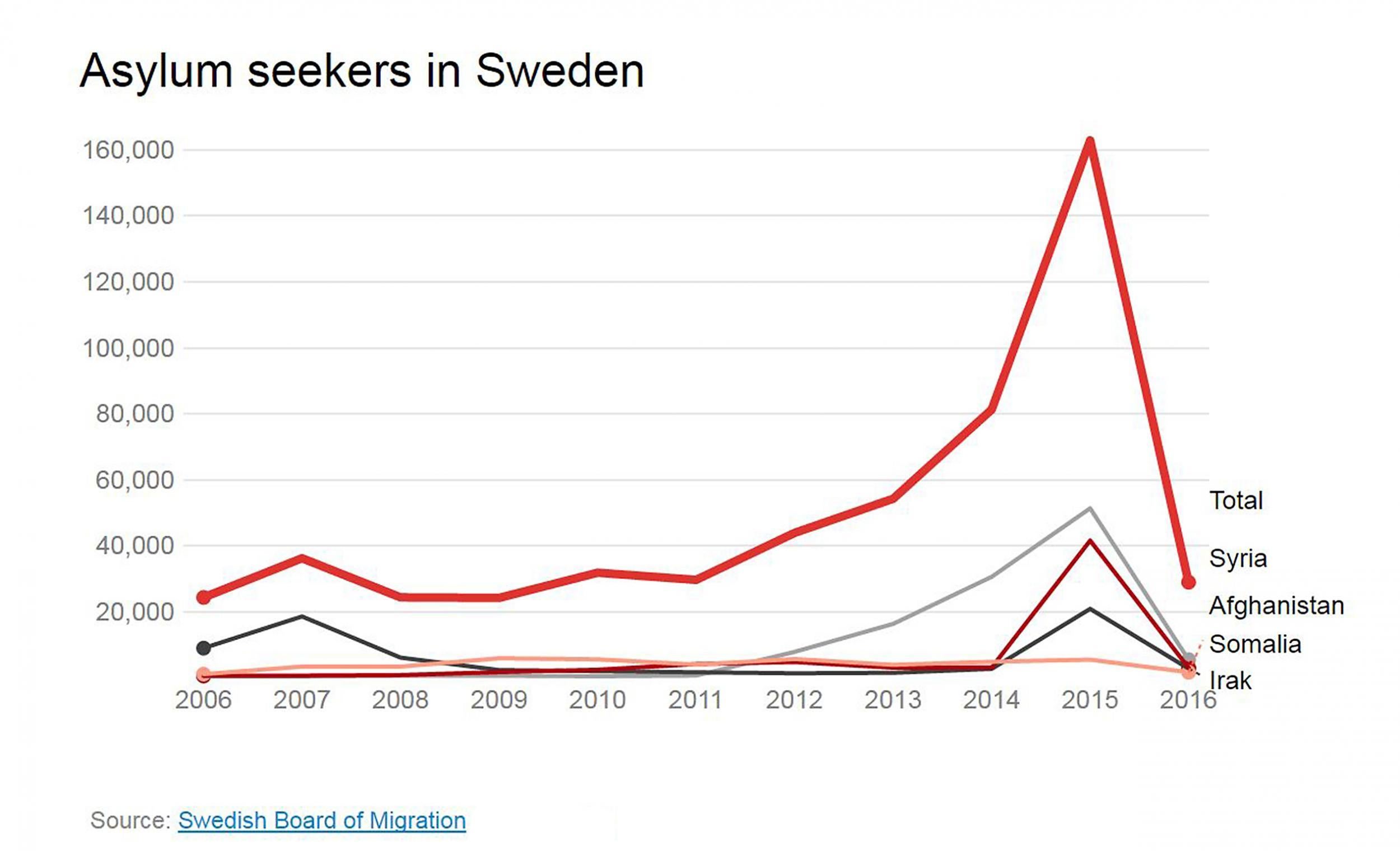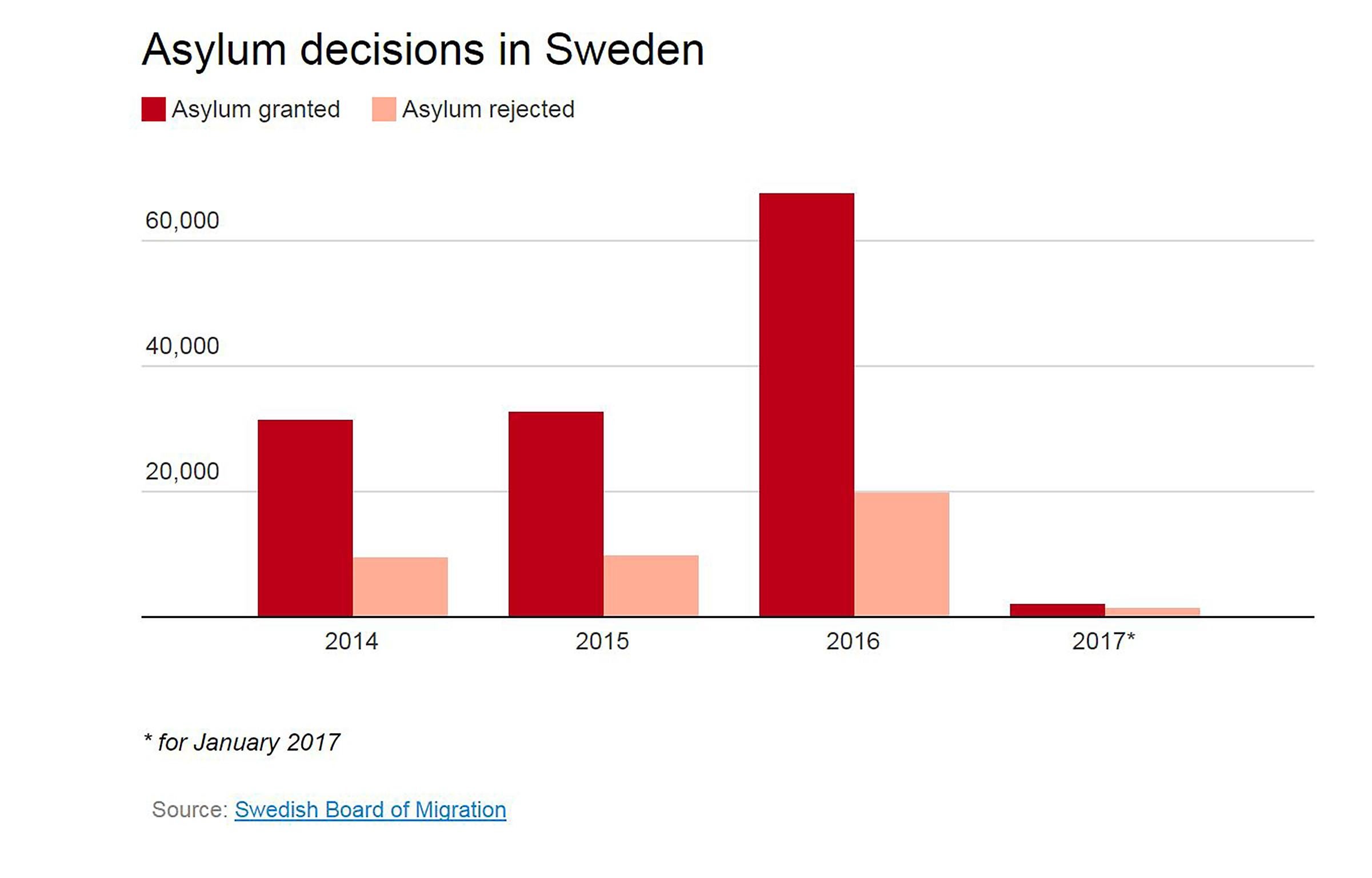Swedish immigration is not out of control – it’s actually getting more restrictive
Sweden's crime rate is not affected by the immigration rate and the state has introduced stricter asylum laws

According to Donald Trump Sweden is “having problems like they never thought possible” because of mass migration. But there is no evidence to support the American president’s claim. The crime rate is not affected by the immigration rate and the Swedish state has actually imposed restrictive measures on asylum seekers in recent years.
Figures from the Swedish National Council for Crime Prevention show a decline in reported offences categorised as “assault, threats, sexual offences, mugging, fraud, or harassment”. The US state department ranks Sweden as a country with a low crime level – well below that of the US.
Though foreign-born people are over-represented in Swedish prisons, there is no evidence to suggest the immigration rate affects the national crime rate. A study of police records by Swedish newspaper Dagens Nyheter found that from mid-October to February, immigrants were connected to less than 1% of all reported incidents.
Opinions about immigrants change and are increasingly polarised in Sweden. In a 2014 European Social Survey most Swedish respondents said that immigration should be allowed to a “great” or “pretty great” extent. However, by late 2016, a majority in the polls wanted to see a reduced intake of refugees.

Tighter control over asylum seekers
Since late 2015 the Swedish government’s two-pronged strategy of introducing border controls and tougher asylum laws has been effective in drastically reducing the number of asylum seekers arriving in the country. A law passed in June set out to limit the “possibilities for asylum seekers and their family members to be granted residence permits in Sweden” for three years.
Another law denies asylum seekers the right to assistance if they have “received a refusal of entry or expulsion order that has entered into force”. Nor are they entitled to assistance if the deadline for voluntary return, which is four weeks, has expired. In other words, it’s an end to free housing and their daily allowance.
While border controls keep asylum seekers at the gate out, the new laws are deterring asylum seekers who are considering going to Sweden. From the record 162,877 asylum seekers in 2015, the number plummeted to 28,939 in 2016 after the restrictive measures were introduced.
However, the new 2016 law regarding those with an expulsion order has not led to more voluntary departures. Of the 4,200 who lost their right to assistance since June 2016, only 136 have left voluntarily. Another 57 have been forcibly removed and 1,400 have gone underground. The rest have found housing around the country on their own.
Sweden has in no way lost control over its territory and immigrants remain at the mercy of national asylum and immigration laws. But that has pretty much always been the case in the modern era. A temporary protected status category that Sweden created in 2016 was devised in the 1990s by the US for Central Americans temporarily unable to safely return to their countries because of ongoing armed conflict or other extraordinary temporary conditions. It has the blessing of the UNHCR as “an appropriate multilateral protection response to humanitarian crises, including large-scale influxes.”

A complex issue
The Sweden Democrats, an anti-immigrant party linked to the far right, has tried to ride the social media wave created by Trump’s comments on Sweden. Last month its leading politicians, Jimmie Åkesson and Mattias Karlsson, wrote an article in The Wall Street Journal arguing that Trump was right about the problems in Sweden.
But although it’s true that there are serious social issues with some refugee groups and individuals, such problems cannot be blamed on cultural differences with simplistic explanations. Some highly conservative mosques in Sweden do preach violent Islamism, but many of Sweden’s mosques oppose them. The Swedish Muslim Council repeatedly condemns Islamist terrorist attacks. Muslim communities, just like any other faith-based community, are highly diverse and often conflicting in their political persuasions and interpretations of doctrine.
The reality of violence against women and gay people within certain immigrant groups poses a persistent challenge to Swedish authorities.
Certain groups of immigrants are also over-represented in crime statistics but these groups overwhelmingly come from socially and economically marginalised suburbs, such as Rosengård in Malmö and Rinkeby in Stockholm which have “very high” unemployment rates. Schools in these immigrant-majority suburbs drastically lag behind those in wealthier areas in terms of student achievement.
Some Muslim communities in Sweden do call for separate Sharia laws but others have explicitly rejected such claims because they want to be integrated into Swedish society, legally as well as culturally.
Last month prime minister Stefan Löfven confirmed Sweden would continue pursuing policies to restrict immigration. The executive board of his centre-left political party, the Social Democrats, said that Sweden can no longer have immigration laws that differ from those of other EU countries. So the laws from June 2016 seem to have set the tone for a new asylum politics in Sweden.
Admir Skodo is a researcher in history, Lund University. This article first appeared on The Conversation (theconversation.com)
Join our commenting forum
Join thought-provoking conversations, follow other Independent readers and see their replies
Comments
Bookmark popover
Removed from bookmarks